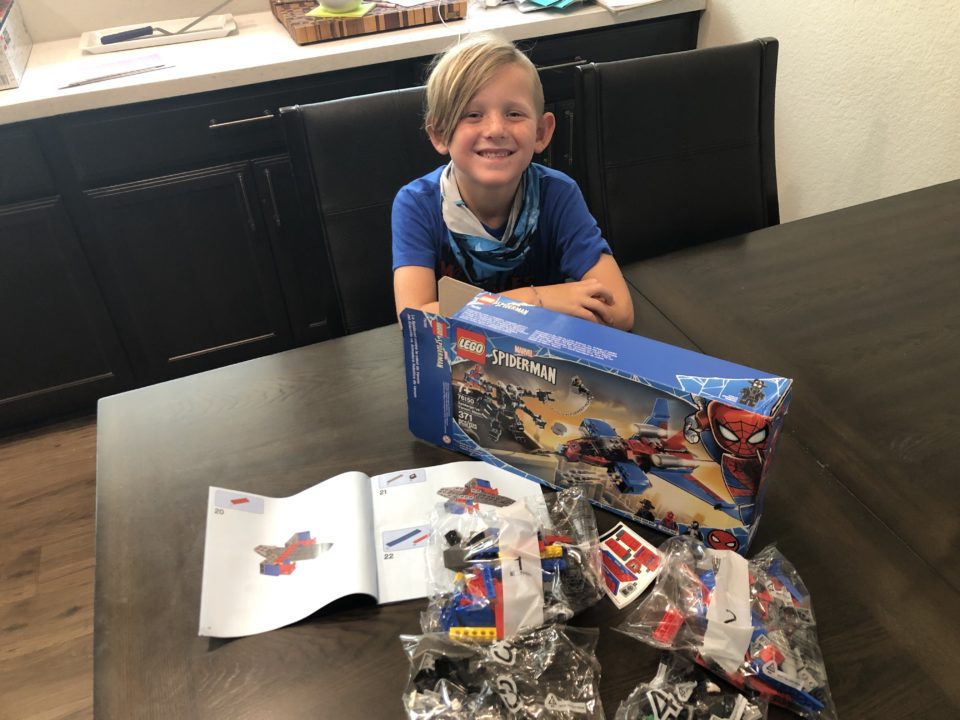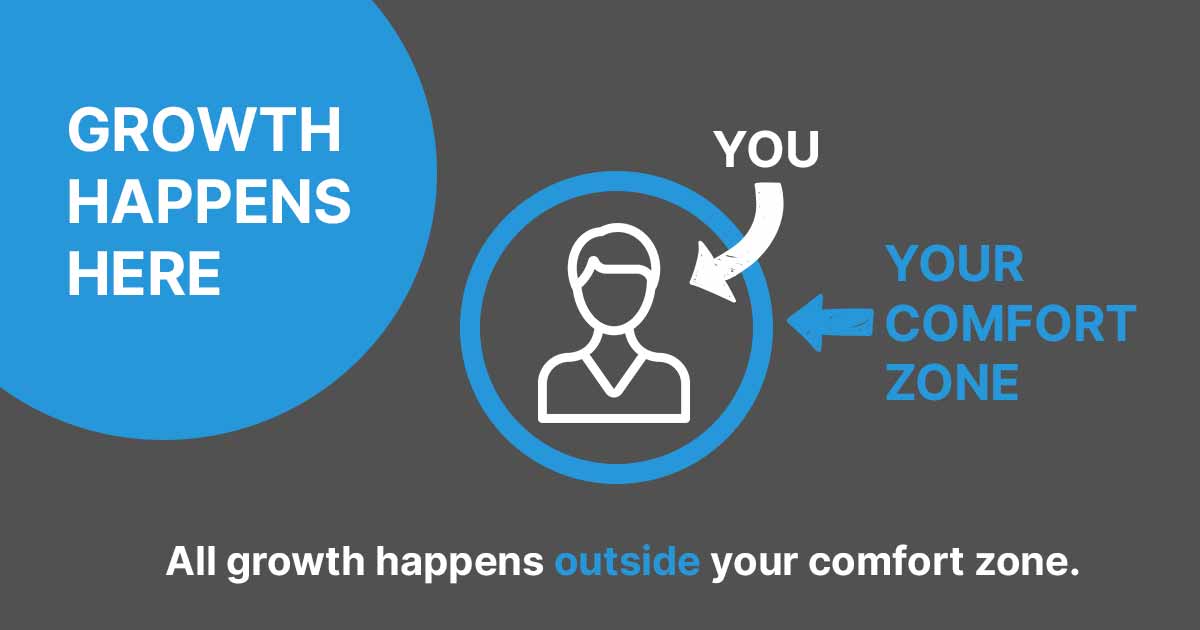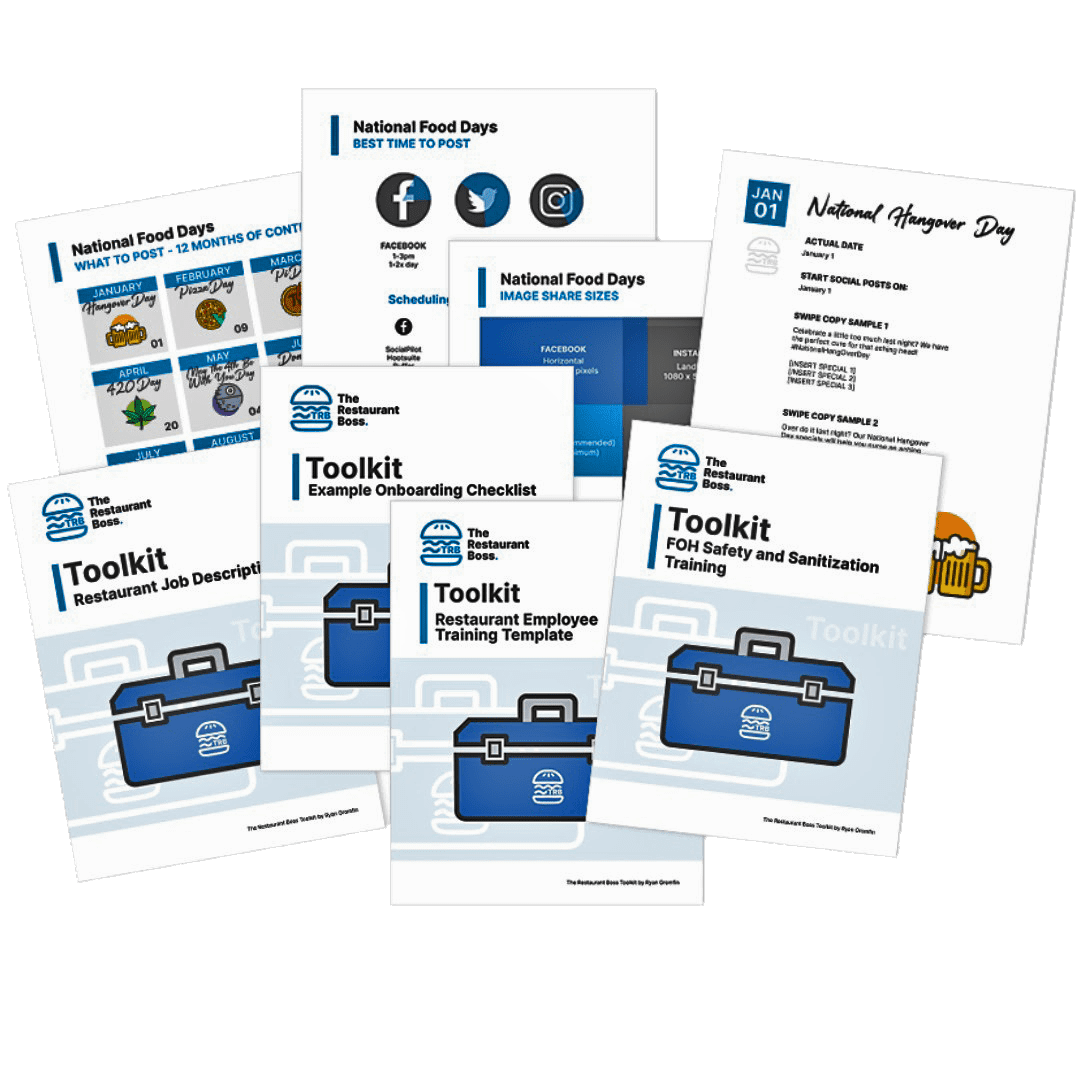WHY “BUSY” IS SLOWING THE GROWTH OF YOUR RESTAURANT

But first… Let’s talk about change.
Like it or not, change is ripping through the restaurant industry.
We’re at a tipping point.
Staffing shortages. Food and supply shortages. Rising costs.
…and some of you are facing increased demand that’s hard to fulfill.
Leaving many restaurants struggling just to keep up.
As a matter of fact, some of my clients have been CUT OFF from their food distributors.
Stress, struggle, and overwhelm are crashing in. We’re in a tough spot right now, for sure.
The answer is NOT as simple as raising prices to cover the higher wages and increased cost of food and beverage purchases.
These are BIG, SCARY, and COMPLEX challenges. The trouble is, we’re so busy to even think about tackling them. When we are faced with having to get out of our comfort zone to tackle something we’re not sure how to fix, we focus our attention on things DO know and that’s where the problems start.
We stay in our comfort zone and just chip away at small things because at least we’re doing “something”.
We print a new menu, but it’s really just the same menu with higher prices and a few new fonts.
We try some new marketing, but never really build out a full marketing plan and measure what’s working and what’s not.
We know there are customer service issues and we talk about them at staff meetings, but we don’t take the time to properly train our team members and ensure they understand and are practicing the new process properly.
That busy work is what is going to put you out of business.
It doesn’t happen quickly so you probably won’t even notice but one day, you’ll open your eyes and you’re a dinosaur. Your restaurant is not current or even relevant anymore. You’re too far behind on technology, repairs, renovations, and trends.
NOW you’re really struggling.

The 4 Ways You Can Battle The Busy In Your Business.
1. WHAT DO YOU REALLY WANT?
This is without a doubt the one thing that I notice sucks more clients into busy work than anything else – operating without a clearly defined goal.
We’re all generally horrible at setting goals 100% of the time because we don’t want to let ourselves down and we definitely don’t want others to think less of us.
When we set clear goals (that are very specific and that have deadlines), there’s a chance you won’t achieve the entire goal – and now we’ve opened ourselves to the pain and embarrassment of not achieving them.
No one wants to be that guy. And you certainly can’t give your team a hard time for not accomplishing their tasks if you can’t accomplish yours.
So we just go with the flow and float around like a feather in the wind. But that feather can get blown off course by a dog’s bark 2 blocks away. A rock isn’t affected by the wind. It’s solid, steadfast, and determined. When you drop it from the air, it lands exactly where it’s meant to land and one has to take careful aim – any miscalculation breaks whatever it lands on.
As scary as it might be, having a clearly defined goal that is very specific and properly defined might take more time, but when you achieve it, will be far more impactful. Anyone should be able to look at your goal and know whether it’s been achieved or not. This is not subjective.
Here’s a simple formula to know that you’ve set a proper goal: From X to Y by Z.
Selling 800 appetizers in a month is NOT a goal.
Increasing our appetizer sales from 650 to 800 per month is NOT a goal.
Increasing our appetizer sales from 650 to 800 per month by March 31st IS A GOAL.
2. CHUNK IT DOWN
We now know why big goals are so intimidating to us but that shouldn’t stop you from creating them.
Lego was nearly bankrupt. Their core audience wanted Lego sets that were cooler, more complicated, BIGGER. So why did their sales plummet even further when they gave them exactly what they asked for?
Kids couldn’t finish these new complicated sets so parents stopped buying them. Lego moved quickly and hired consultants to revamp their instructions.

They broke that big, complicated set into manageable pieces. There are multiple bags of bricks each with its own set of instructions.
Now kids could work on a smaller section of the project without being confused or overwhelmed. Since they were working in smaller chunks, they weren’t losing parts or forgetting where they left off on the project.
Now, Lego is one of the most successful brands in the world.
Try this in your restaurant!
Using our example goal to sell 650 appetizers to 800 appetizers per month, try breaking that down from a single goal to 2-3 projects.
Maybe one project is a new script at the table, another project is a few new appetizers, and another project can be experimenting with pricing.
Now you can turn each of these projects into action plans that outline each step…Step 1, Step 2, Step 3, etc.
Then each of those steps becomes your tasks or action items.
Let’s look at this as a whole plan.
If you want to increase appetizer sales, you’re first going to work on a better tableside or cashier script. When you break that down into a plan, it might look like this:
-
-
- Step 1 – Write the new script.
- Step 2 – Teach your team the new script.
- Step 3 – Test your team on the new script.
- Step 4 – Develop a way to quickly measure results.
- Step 5 – Tweak the script if needed.
- Step 6 – Repeat until you get desired results.
-
3. BLOCK AND TACKLE
At this point, most people start drafting a to-do list. It’s also the point that I scream out loud: NO! TO-DO LISTS DON’T WORK!
I bet you’ve been using some kind of a to-do list for a while. But do you also find that:
-
- The longer the list becomes, the more you avoid it
- Anything that doesn’t gets done moves onto the list for the next day
- It just sits on your desk for weeks while only one or two things ever get crossed off?
Time blocking works. Time blocking is basically moving your tasks, steps, or action items directly to your calendar instead of a piece of paper or some fancy digital to-do list that sucks just as much as paper.
There is a lot of psychology as to why calendar blocks work better than to-do lists but to sum it up quickly: Things in our calendars always have associated deadlines so they must get done. When was the last time you decided not to see the doctor that you had an appointment with just because you got distracted? If it’s on your calendar, you have a better chance of doing it.
Like everything in life, this takes practice and you will not perfect it in one day. Just don’t give up and tell me it doesn’t work. You have to put an honest effort into this to see any results.
Practice doesn’t make perfect … perfect practice makes perfect.
Practicing the wrong way every day for a year still means you’re doing it wrong and you need to be doing this right.
4. KEEP IT UP
I have a client who says that every day his team puts pebbles in his basket. He can carry a few pebbles up the hill, but not a full basket of them because it weighs too much.
I tell him to make sure he gets some of those pebbles out of his basket daily so that when they put new ones in tomorrow, the basket is starting nice and light instead of being weighed down with yesterday’s pebbles.
Momentum is powerful.
You need to work at your goals EVERY SINGLE DAY. Some days you might work on them for 5 minutes and other days for 8 hours. You have to set time aside in your calendar to work on your goals and not just the problems (or pebbles) that are thrown into your basket.
This requires an objective and a mind that is clear. Your mind has to fiercely guard what it allows to rent space in your brain. Distractions are not allowed into your head where they can settle down and take up space.
They use valuable resources that must be spent on your own goals, growing your restaurant, fixing the challenges, and improving your culture. You don’t want to waste time and mental resources dealing with a time-off request that came in late AGAIN because you have never taken the time to set up a proper time-off request system.
Be gentle with yourself in the beginning. You aren’t going to be perfect. You’re going to struggle and you’re going to have questions.
Why do we stop hiring coaches?
In grade school, you had teachers for every subject and coaches for every extracurricular. This was not weird when you were a kid. It’s what was expected at that age.
And guess what…every year you improved and moved onto the next level.
So why do we stop hiring people that can help us succeed?
For some odd reason, average adults don’t think about hiring coaches and we think that learning stops after graduation. But the best in the world at anything (including business) never stop learning and aren’t afraid to ask for help.
When it comes to business coaching, most people are a little hesitant. It’s not as common as a piano teacher or a golf coach.
Fear of the unknown creates doubt and uncertainty.
How Do You Know When It’s Time to Find a Coach?
If you find yourself with:
-
- staffing shortages.
- food shortages.
- supply shortages.
- rising costs.
- stress, struggle and overwhelm.
- thoughts that you’re just not where you imagined you’d be at this point in your career.
If you find yourself stuck or doing the same things over and over again but not seeing the results you desire…
If you simply don’t know what to do next or are not sure how to get there…
You should hire a coach.
3 Reasons Why People Avoid Coaching
1. I Can’t Afford Coaching.
Group coaching is often dramatically less expensive and can actually offer you better results because of the collective learning, questions and ideas.
Imagine how much faster you would grow if you never made a mistake because someone has been in your shoes before, made that same mistake, and has steered you in the right direction from the start.
Napoleon Hill studied the greatest businessmen of the American Industrial Revolution—men like Rockefeller, Carnegie, and dozens of others. He was hired to shadow them and document how they lived their lives so others can learn from them.
He found the greatest asset they had was the company they kept. These business titans met in “mastermind” groups to discuss business. These groups were led by a coach that offered insight and nurtured the group to converse with each other and solve complex problems.
I urge you to find other restaurant operators who are performing at your level or above to hang out with. Not a Facebook Group filled with people bitching and complaining about staff and the government minimum wage, but a group of people who are like-minded and see solutions versus problems.
A group where all you have to do is ask them how they did it, because what worked for them likely will work for you.
It’s like putting a coach in your back pocket.
You bring him out when you actually need the help and advice.
You can also think of group coaching like car insurance. You might not need it every month but when you DO need it, you’re sure glad to have it!
Plus, you have an amazing peer group resource at your fingertips every minute of every day. These are the people who “get you” because they’re in the same situation. That alone is sort of priceless, right?
Showing up and participating in the conversations, helping other people solve their problems, and getting help from them with yours is where the power of a group really comes to life.
2. What if I don’t get the results?
Just to be clear, if you think for even a moment that a coach or coaching group will get you results, you are dead wrong. YOU are the only one who can achieve the results you want.
You are still going to have to do the work—no coach will do the work for you!
Most people:
-
- Don’t understand what a business coach is or how one can help them.
- Don’t understand the process.
- Don’t think they need coaching because they are doing just fine or they can DIY it.
Forget for a moment that coaching isn’t as common as it should be and ask yourself “why not use a coach?” instead of “why use one?”.
A good coach sees things you don’t see in yourself, not because they are smarter than you, but because they have a different perspective.
You can’t see all the trees in the forest because you are too busy running your business. A good coach will help you see details that you are missing. They have proven methods for fixing challenges and will map out a straight path forward because they do this all the time.
They can dramatically shorten the learning curve and get you where you want to go faster.
Great coaches can take all of the things they’ve learned from working with multiple clients who shared similar goals and experiences and can share with you what works and what doesn’t. You might have 4 or 5 solutions to a problem but unsure which one is right, but your coach will already know the right way because they’ve already done it with multiple other clients.
So yeah, a coach shortens the learning curve not because they are better than you, but because they have just done this more than you.
If we believe the myth that a coach needs to be better than us, then the best in the world would never be the best because nobody can be better than the best. Michael Phelps’ coach does NOT have ANY gold medals (but Michael has the most!). Tiger Woods’ coaches don’t have any PGA wins either.
3. I’m already too busy.
I know what it’s like to try to fit in all of the things that need to be done into your schedule.
It’s frustrating and tiresome to never feel like you’re getting enough done.
Do you know how they say that you should meditate 10 minutes a day? That’s unless you’re busy, then you should meditate for 60 minutes a day!
If it seems impossible to add a 30-minute chunk of time to your calendar when things around you keep blowing up, that’s exactly WHY you need to hire a coach.
Benjamin Franklin says, “Insanity is doing the same thing over and over and expecting different results.”
If you keep doing the same things exactly as you do now, nothing is ever going to change. You can hope it will, and while HOPE is a strategy, it is NOT a very good one.
So what’s going to change?
If I were to promise that if you did something every week for 6 months your problem would disappear, would you do it religiously?
Of course, you would!
Now, I can’t promise that your problems will disappear just by showing up and participating. But I do know that if you prioritize your group coaching sessions and do the work, you will see a difference in yourself, your staff, and your restaurant.
Is it worth committing a few minutes a week to be able to see those problems disappear?
Stop putting out fires!
Like a fireman in your restaurant, you respond to every issue as they come up, but why not just build a fireproof business where fires never start in the first place.
What got you here won’t get you there.
The only thing you should be afraid of is not changing, not growing, not exposing yourself to different thinking, or not trying something new.
ALL growth happens outside the comfort zone, if it was comfortable, you would already be doing and it would not be growth. The best way to get out of your comfort zone is to know that somebody who has done this before is there with you.

If you need help lifting weights, you only add more to the bar when your trainer (or spotter) is behind you. Why would business be different?
If you keep doing the same things you have been doing, you CANNOT possibly expect different results.
You have to allow yourself to try something new. Something that might even feel weird or something totally outside of your comfort zone.
-
- You might actually grow faster.
- You might actually get out of the place you are stuck.
- You might actually get more done in less time than you have in the past.
There are no brownie points for being busy.
Frantically moving from one thing to the other, never pausing to catch your breath, and now you’re exhausted.
This will not get you results.
There are only points for successful execution.
Points for efficiency and productivity.
Points for doing work that matters.
Points for happy employees.
Points for happy customers.
Points for growth.
Am I the right coach for you?
I currently charge $1000 per month to work with clients individually and they get about 3 hours of my time each month. That is $12,000 a year!
I don’t have a contract with any of my clients — yet my average client works with me for over 3 years.
They keep getting results that far exceed the cost of working with me.
There’s some bad news though. Even if you’re convinced you need a coach and that I’m the person to help you, other than one-off 90-minute strategy sessions, I’m not taking on any new one-on-one clients right now.
There are only so many hours in a week and I am just too busy with commitments I have already.

This is why I created the TRB Membership. It’s a membership group led by me with other motivated restaurant operators from all over the world participating.
Once a month, I deliver a new 45-minute training session on the hottest topics that will affect your business to help you fix what’s happening and grow your business.
I also hold an open Office Hours call once per month so I can answer your questions that have come up. You can either post those in the Facebook group or attend the Office Hours call live.
All of our calls are archived and accessible at any time!
As an extra bonus, all TRB Members have access to all of my training courses (yes, it DOES include SCALE!).
If you think you’re too busy for this – then you need this more than anyone on the planet.
If you’re afraid you won’t get results, then you have never worked with a group of other restaurant owners who are winning, because this is a group of winners and we all help each other out.
One idea, one new strategy, one change to the way you operate can be the difference between stress, struggle and overwhelm or the success you desire.
I’m on a mission to impact more restaurants and help them navigate these challenging times, which is why I’ve eliminated the excuse of cost and made our program nearly impossible to turn down.
The time is NOW to make a change and step out of your comfort zone.
The time is NOW to take ONE SIMPLE STEP TO ACCELERATE GROWTH IN YOUR RESTAURANT!


